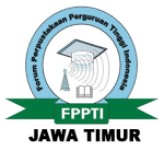Implementing Health Protocol in University Libraries of Muhammadiyah –‘Aisyiyah
Downloads
Background of the study: Libraries have an important role in supporting the online learning process during a pandemic. Several university libraries provide services to meet the information needs of the academic community. The library provides services by implementing a health protocol.
Objective: To discuss the extent of the implementation of health protocols in the Muhammadiyah 'Aisyiyah College Library (PTMA).
Research Methods: This research was conducted with a quantitative descriptive approach using a semi-open questionnaire method. Respondents in this study consisted of 126 PTMA libraries from a total of 174 PTMA libraries throughout Indonesia.
Results: Several protocols implemented in the PTMA Library include: implementing physical distancing, using masks, providing hand sanitizer, checking body temperature, limiting the number of users to the library, preparing hand washing stations, sterilizing booths, treatment of returned collections, and using gloves. .
Conclusion: PTMA libraries during the pandemic have carried out library services by following the health protocol standards applied in each library.
Downloads
Copyright (c) 2021 Yanti Sundari, Arda Putri Winata, Ayu Wulansari

This work is licensed under a Creative Commons Attribution-ShareAlike 4.0 International License.
Record and Library Journal by Unair is licensed under a Creative Commons Attribution-ShareAlike 4.0 International License.
1. The journal allows the author to hold the copyright of the article without restrictions.
2. The journal allows the author(s) to retain publishing rights without restrictions
3. The legal formal aspect of journal publication accessibility refers to Creative Commons Attribution Share-Alike (CC BY-SA).
4. The Creative Commons Attribution Share-Alike (CC BY-SA) license allows re-distribution and re-use of a licensed work on the conditions that the creator is appropriately credited and that any derivative work is made available under "the same, similar or a compatible license”. Other than the conditions mentioned above, the editorial board is not responsible for copyright violation.


 57201398420
57201398420

























